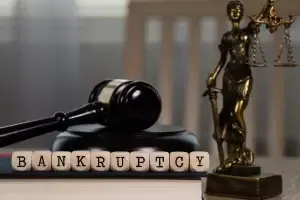Chapter 13 bankruptcy is a great tool for debtors as it protects more assets than Chapter 7. It also provides a structure through which debtors can reorganize their debts and catch up on overdue payments, instead of facing a Chapter 7 liquidation. So, Chapter 13 can give a debtor a repayment schedule that is favorable so they can take care of back taxes.
However, how a tax is treated under Chapter 13 largely depends on whether it is priority or nonpriority.
Priority Taxes
Priority taxes are simply the most important debts. In Chapter 13 bankruptcy, priority taxes must be paid for the debtor to get a discharge. A Chapter 13 bankruptcy makes it possible for debtors to catch up on back taxes in a convenient and affordable way over a three- to- five- year period and stop a tax sale. In addition, priority debts are paid after your mortgage, and then whatever is left will be divided between your unsecured creditors.
Priority debts that must be paid through your Chapter 13 repayment plan include:
- Past due child support
- Past due spousal support (and other past due to domestic support obligations)
- Recent income tax debts
- Non-dischargeable tax penalties
Nonpriority Taxes
While most back taxes are considered priority debts, few exceptions exist. If a back tax is deemed nonpriority, you will likely be allowed to pay off only a portion of the entire debt through your Chapter 13 plan. How much you are expected to pay will largely depend on your income, assets, expenses, debts, and bankruptcy exemptions. Upon completion of your repayment, any remainder nonpriority taxes will be discharged alongside other general unsecured debts.
Past due income tax obligations can be discharged in Chapter 13 bankruptcy if they meet the requirements to qualify as nonpriority tax debts. Tax debts will be considered nonpriority if:
- You did not willfully evade tax or commit fraud
- Your tax return was due within a minimum of three years prior to your bankruptcy filing
- Your tax return was filed at least two years before you filed for bankruptcy, unfiled returns are not dischargeable
- Your liability has not been examined by the IRS within the 240-day period before you filed for bankruptcy (take note that there may be an extension of this 240-day limit if you have filed for bankruptcy or submitted an offer in compromise and prevented the IRS from going on with its collection efforts).
Stay Updated on Your Tax Debts
To determine what will happen to your back taxes in Chapter 13 bankruptcy, it is important that you stay up to date on the timing of your taxes, the date they were assessed, and whether a lien has been filed by the taxing authority to secure the debts. Here’s how you should get started:
- IRS Tax Account Transcripts
Your tax account transcript displays basic data such as taxable income, return type, and detailed information of each year’s tax history. This information will include the date the tax was assessed, date tax return was filed, whether any liens were recorded against your property, and whether any events caused the time periods to be tolled or stopped.
- Land Records
County land records will keep you informed as regards any recording of a lien against your property by the IRS. If a lien was recorded, you may need to consult with your bankruptcy attorney to determine if it was done properly.
When the IRS Records a Lien
If a lien was recorded against your property, the tax debt now becomes a secured debt for bankruptcy. If the debt meets the dischargeability requirements, your debts may be wiped out via Chapter 13 bankruptcy discharge. However, the tax lien wouldn’t go away. This means that failure to pay off the entire lien amount (with its interest) through the course of your bankruptcy, the Internal Revenue Service can decide to seize your property at the end of your bankruptcy.
About the Author: Roxane Kaye, has been practicing law since 2002. She is admitted to practice law in Michigan state courts and before the Federal Bankruptcy Court of Eastern Michigan, Southern Division, as well as the Federal District Court of the Eastern District of Michigan. Roxane covers cities such as Burton, MI, Flint, MI, Fenton, MI, Beecher, MI, Lapeer, MI, Waterford, MI, Auburn Hills, MI, Pontiac, MI, Howell, MI, Owosso, MI, Wixom, MI, Rochester, MI, Rochester Hills, MI, Novi, MI, and South Lyon, MI.



